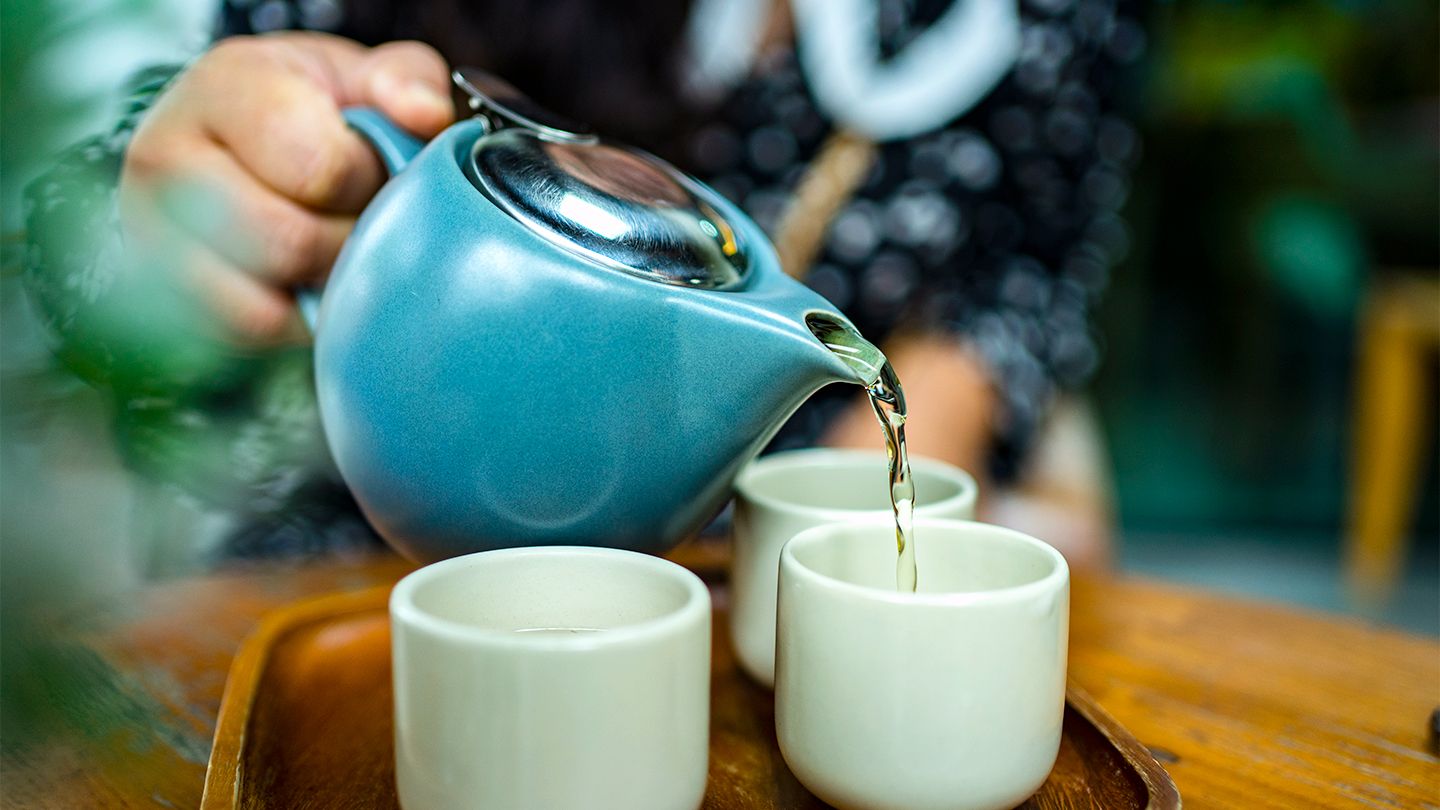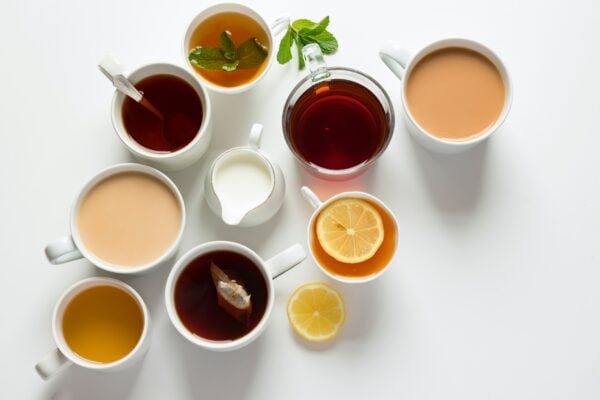According to a study published in the US National Institutes of Health (NIH), drinking tea has been considered a health-promoting habit since ancient times. Modern medical research has been providing a scientific basis for the effects of tea. Evidence supporting the health benefits of drinking tea grows stronger with each new study published in the scientific literature.
1. Health benefits of tea
The nutrients and minerals found in tea can contribute to overall health. While drinking tea is not a solution or cure for any health condition, people can easily incorporate tea into a healthy diet.

Drinking tea in moderation is good for your health.
Lower cholesterol
Black tea contains theaflavins and thearubigins (antioxidants), which have health benefits. One study found that they helped reduce hypercholesterolemia (high cholesterol) when consumed as part of a healthy diet.
Reduce the risk of hyperglycemia
Similar research also showed that theaflavins and thearubigins in black tea also contribute to reducing the risk of hyperglycemia or high blood sugar.
Reduce the risk of cancer
Green and black teas contain important polyphenols, which are micronutrients found in plant foods. The polyphenols found in these teas have been linked to healthy regulation of cancer cell growth and survival, leading to a lower risk of cancer.
Better sleep quality and reduced risk of depression
Some teas, including chamomile tea, are used to help people relax at the end of the day, promote better sleep, and help them relax. Research shows that chamomile tea helps postpartum women sleep better and reduces depression.
More focused and alert
More research is needed to understand exactly how caffeine affects cognitive function. However, some studies have shown that consuming the caffeine found in some teas, in small doses and regularly, can help improve focus and alertness.

Choose the right type of tea to get the benefits and limit side effects.
2. Does drinking too much tea affect your health?
Some teas have high caffeine content such as black tea and green tea so there are some points to note when drinking tea because consuming too much caffeine can cause symptoms such as faster heartbeat, muscle tremors, headaches, tension, anxiety, insomnia.
Sleep disorders
Drinking too much tea can interfere with sleep as the presence of caffeine in tea affects the sleep cycle as caffeine interferes with the hormone melatonin, which affects sleep patterns.
Low nutrient absorption
Increased caffeine intake can actually hinder digestion and reduce nutrient absorption. Tea contains a component called tannin, which interferes with the absorption of iron from the foods we eat. This is why it is best to drink tea between meals rather than during meals.
Increased restlessness
Studies have shown that drinking tea regularly can help reduce stress and anxiety. The calming effects of tea are largely due to its active ingredients, such as l-theanine, which has been found to increase alpha wave activity in the brain, leading to relaxation.
However, the habit of drinking tea to relieve stress can actually worsen stress and anxiety. This is because consuming too much caffeine can lead to restlessness. The best way to deal with these symptoms is to reduce your tea intake and replace regular tea with healthy teas such as chamomile, white or green tea.
Heartburn and discomfort
The presence of caffeine in tea aggravates the acid formation in the stomach leading to heartburn, bloating and discomfort. Moreover, it also causes acid reflux in the body when consumed in excess.
Not good during pregnancy
Regularly consuming too much tea can be harmful to both mother and baby. High caffeine consumption can increase the risk of complications. Therefore, pregnant women should drink decaffeinated or herbal teas during pregnancy.
While small amounts are generally safe, health experts recommend that pregnant women consume no more than 300mg of caffeine per day. Women who are sensitive to caffeine should limit their caffeine intake to 100mg per day.
Headache
The habit of drinking tea when stressed can be the cause of headaches. Drinking too much tea or any source of caffeine can lead to irritability and headaches. This condition is aggravated by intermittent fasting.
Nausea
Drinking tea, especially milk tea, can cause nausea because the tannins in tea irritate digestive tissue and lead to bloating, discomfort, and stomach pain.
3. Refer to the caffeine content in tea
Drinking tea in moderation has health benefits, but consuming too much can have negative effects. Consuming herbal tea or green tea in moderation is considered safe during pregnancy and may have health benefits. It is important to remember that consuming too much caffeine from any source can have negative effects on some people.
While there is a link between green tea consumption and a lower risk of some diseases, it is best to avoid consuming too much tea, especially those with high caffeine content. Check out the caffeine content of different types of tea below to make a healthy choice:
- Black tea: 40–60mg caffeine per cup.
- Green tea: 25–40mg caffeine per cup.
- Oolong tea: 12–55mg caffeine per cup.
- White tea: 6–60mg caffeine per cup.
- Herbal teas (including lemon tea, chamomile tea, and hibiscus tea): 0–5mg caffeine per cup.
Although there are many benefits to adding tea to our daily diet and lifestyle, health experts often recommend that people with normal health should not drink more than 4 cups per day. Additionally, people with medical conditions and pregnant women should consult their doctors about how much tea is suitable for them.
Source: https://giadinh.suckhoedoisong.vn/7-tac-hai-cua-viec-uong-qua-nhieu-tra-172240922074615535.htm





![[Photo] Super harvest moon shines brightly on Mid-Autumn Festival night around the world](https://vphoto.vietnam.vn/thumb/1200x675/vietnam/resource/IMAGE/2025/10/07/1759816565798_1759814567021-jpg.webp)




























































































Comment (0)